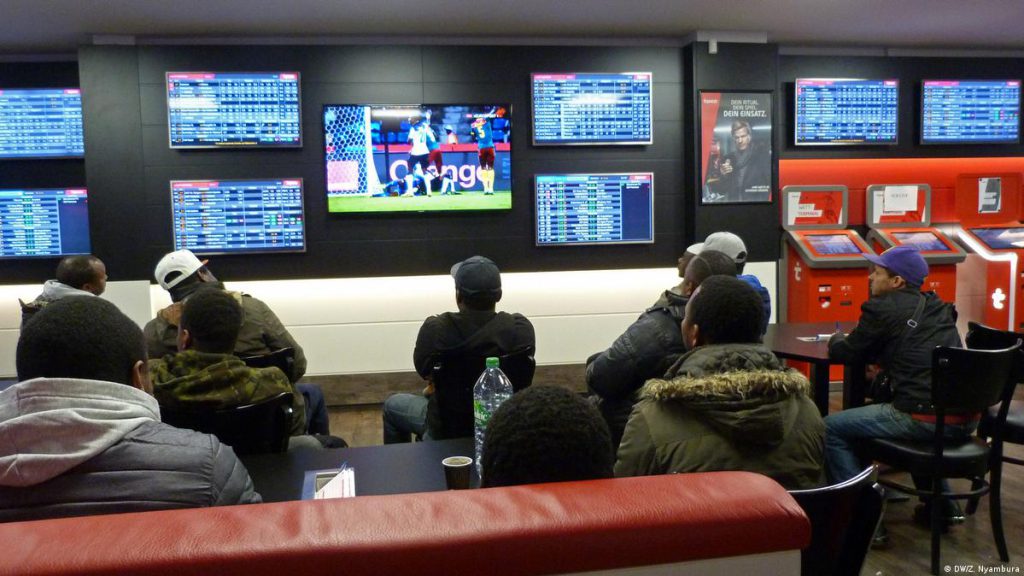Shimbo Pastory
This article was published in The Citizen Newspaper – Tanzania on 12th November, 2022.
In our society, most people act on what they hear, see, or read in public media. As such, advertisements, depending on how they are delivered, can lure people into making decisions that they rather would not.
Every blessed day there is at least one TV channel, Radio station, mobile network (through calls or SMS), or newspaper with nationwide coverage that advertises some ‘easy to win’ extra-large prize from a betting company.
While questioning whether such betting draws are legit will be a different ball game altogether, in this column we will look at how endeavouring in such circles awards chances of progress or regress in life. The inquiry will centre on why people choose to gamble, and whether it is a healthy move for our society as a whole.
The idea of people gambling over mystery boxes, lottery, fixed odds, and wagers dates back to the time before the development of modern written history. It is a centuries-old pastime. Studies indicate that some form of gambling has been discovered in the Palaeolithic age (Stone Age).
China is mentioned among civilizations with clear records of the presence of gambling games in some of its early literature, over 2300 years BC. Modern evolvements of gambling led to the classification of gambling into two.

First, what is referred to as chance-based gambling; which includes such things as playing bingo, roulette, and the lottery whereby the machines will single out the winner randomly.
The second type is skill-based gambling whereby one’s knowledge, ability and skills tend to influence the chances of winning or losing. This covers such things as betting on sports, blackjack, and poker, to mention a few.
The question of dignity
Justifiably, the legal aspect is clear in the sense that laws are not broken, and betting activities are regulated by the Gaming Board of Tanzania (GBT). GBT is legally established under the Gaming Act No. 4 of 2003 and has the mandate to oversee, monitor, and regulate all gaming activities in the country.
GBT reviews and approves rules and modalities for these games. It is not at all a criminal or illegal activity.
The economic aspect is reasonable too, in that the country gains taxes from such endeavours.
Besides, thousands of people are employed in different betting companies, and many more have established themselves as agents of these companies even in rural areas. However, while those are from a broader structural view, gambling can as well be looked at from a different standpoint.
In a society that encourages its members to engage in dignified productive activities, do we think this is the way to go? Chances are that young people born in the year 2010 will grow up thinking about dignified work in a different way as they would have repeatedly heard of this easy way to make millions of money.
Strategic shakedown
While it was fine to have betting as one of the things happening around, the current escalation is horrifying. Betting has been allowed to take centre stage. The fact that companies can afford to advertise whatever they do does not necessarily mean that they should be allowed to; more scrutiny over such social mobilization will do us good.
The stress of not being able to make ends meet may make one seek security in the unknown; and with the strategically awarded rewards at the beginning, one may be tempted to go for even higher bets.
But time has shown us a different face of betting games. They are impoverishing and addictive, awarding prizes to very few people, yet enticing thousands of people to invest their money there.
The bitter truth is that betting activities are meant to make rich people who run them richer, by putting to test the economic vulnerability of the poor and those with average income.

Research by Shikana Group which was published by Sigma Africa (2019) established that most often the bonuses awarded are nothing compared to the tax one pays upon winning, hence it is not at all loss for the betting company.
Most of those involved in betting fall within the age range of 18-34 years, the prime of human productivity. I would think that betting becomes an option when a person feels that the little money they have will not accomplish much.
Repeated attempts slowly usher one into a novel addiction, a riddle which gets out of hand with time. Addiction to betting is as damaging as any other, as resources are channelled to waste, while needs are not satisfactorily met.
Though the country gets taxes from betting, it makes our young people deviate from mainstream hustles and productive innovativeness. The country will benefit even more if the energy, enthusiasm, talents, and skills borne in young people are promoted, such that society reaps the fruit of their labour. This means creating employment for them.
With 64% of Tanzanian people averaging under the age of 24 we need a well-equipped system to help them amass skills and maximize their talents for the future ahead of them. That is called thinking beyond now.
